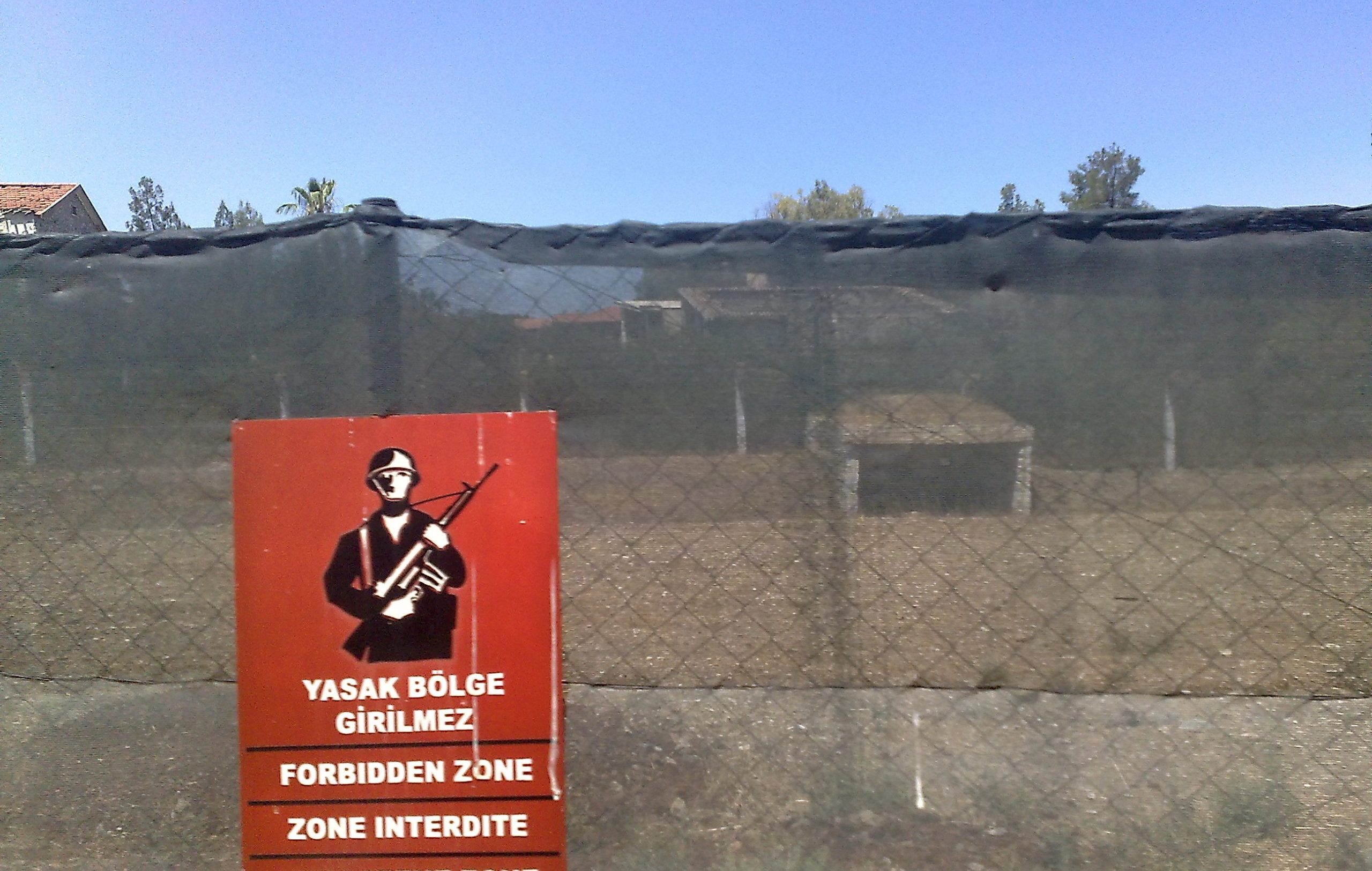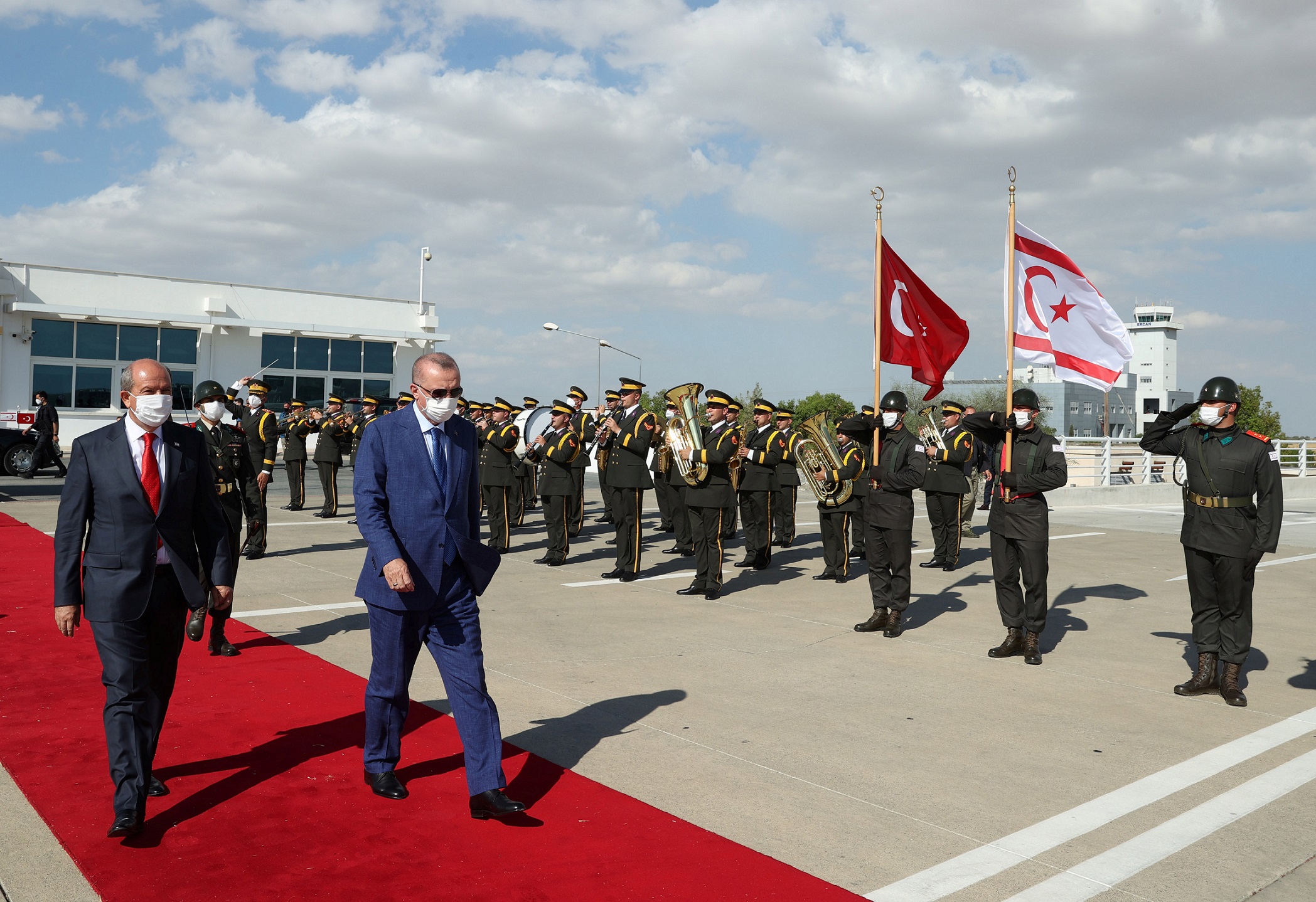Publications
INSS Insight No. 1502, August 3, 2021
The dispute between Greek Cypriots and Turkish Cypriots is one of the most prolonged open conflicts, and to date, efforts at a resolution by the international community have failed. Over the past year, calls from Ankara have increased for a paradigm shift to resolve the conflict, from a federal arrangement to a two-state arrangement. Developments during the July visit to Cyprus by Turkey’s President exacerbated Greek Cypriot fears of a change in Turkish policy that will culminate in Turkish annexation of Northern Cyprus and jeopardize their own control in southern Cyprus. Cyprus has become a close partner of Israel in the past decade, and Jerusalem therefore has a strong interest in events on the island. Furthermore, enhanced Turkish control will be accompanied by the opening of Turkish air and naval bases in Northern Cyprus, which will have an effect on Israel’s maneuvering space.
Over the past year, Turkey has become increasingly determined to effect a paradigm shift, through facts on the ground, in efforts to resolve the conflict between Greek Cypriots and Turkish Cypriots. International efforts to promote a solution to the conflict in Cyprus, which was divided de facto in 1974, look to the reunification of the island on a federal basis. Since October 2020, however, as evidenced by Ankara’s repeated declarations, the emphasis has been on a paradigm shift toward a two-state solution. During his visit to Northern Cyprus on July 19-20, 2021, Turkish President Recep Tayyip Erdogan and Turkish Cypriot leader Ersin Tatar stated that a small part of the ghost town of Varosha, currently classified as a military zone, would be opened for civilian use. In this respect, the change in Turkish policy on Varosha, which the Turkish Cypriots have kept for many years as a bargaining chip with the Greek Cypriots, is part of the Turkish attempt to achieve a change of paradigm regarding a solution of the conflict on the island.
The suburb town of Varosha, located on the outskirts of Famagusta, was the main vacation destination on Cyprus before 1974. The resort town attracted many celebrities, earning the title of the “Las Vegas of the Mediterranean." The town's Greek residents fled in 1974 following the Turkish invasion of the island, and Turkey decided to keep the town in its abandoned state as a closed military area. Two UN Security Council resolutions in 1984 and 1992 called for the return of the properties in the town to their original owners, and for putting Varosha under UN administration, but Turkey did not comply with these resolutions.
According to the federal ideas previously proposed for solving the conflict on the island, Varosha would return to Greek Cypriot control. Over the years, the abandoned buildings have constituted graphic evidence of the difficulty in promoting a solution of the Cypriot question. In October 2020, the Turkish side decided to open the beaches in the area to visitors, thereby paving the way to a decision to partially open the town, and to promotion of the idea of dividing Cyprus into two countries. Although the Turkish side is offering compensation to the owners of the Greek Cypriot properties, the current policy constitutes a withdrawal from understandings reached in previous rounds of talks between the sides, whereby the town would be returned to Greek Cypriot control.
While a federal solution is challenging, there are a number of major problems with a two-state solution to the conflict in Cyprus. The island's small size renders such a solution difficult to implement, and Cyprus's admission to the European Union as a single unit in 2004 constitutes a barrier to its division. Furthermore, the Greek Cypriots have no guarantee that Ankara will not annex the Turkish section of the island in the future. Other neighboring countries also fear that a division of Cyprus would be the first step to Turkish annexation of Northern Cyprus. However, Turkish impatience with the absence of a political solution is growing. In a 2004 referendum on the Annan plan for a federal unification of Cyprus, the Turkish Cypriots supported the plan by a large majority, while the Greek Cypriots rejected it. Since then, the assessment has grown in Turkey and Northern Cyprus that the Greek side will not agree to reunification of the island on terms that prevent a recurrence of the situation that prevailed in the 1960s, when the security of the Turkish minority was under threat. Erdogan expressed this impatience by saying, "We don't have another 50 years to waste."

While Erdogan's visit was part of the regular celebration of the 47th anniversary of the Turkish invasion of Cyprus ("the peace operation in Cyprus" in Turkish, also called Operation Atilla), the more aggressive content and tone of Erdogan's speech on the occasion can be linked to the political situation in Turkey. Following the slump in the Turkish economy, domestic opposition to the government and the President has grown. Polls show that support among the Turkish public for Erdogan and his parliamentary coalition is weakening, and it is even possible that he will not win the elections scheduled for 2023. Escalating the situation in Cyprus is therefore a way of gaining popularity among the Turkish public, in which there is broad support for the Turkish Cypriots. Similarly, the large Turkish delegation that accompanied Erdogan to Cyprus included representatives from the Felicity Party, which is currently part of the opposition. This can be viewed as a sign of Erdogan's efforts to expand his political support base by uniting forces around the Cypriot issue.
Erdogan's mention of Varosha was a carefully calculated provocation. Defying expectations, Erdogan refrained during his visit from inaugurating the airbase that Turkey is building in northeastern Cyprus, from which Turkey will be able to operate unmanned aerial vehicles. Because of the momentous regional consequences of this base, this measure would have likely drawn severe criticism from Eastern Mediterranean countries. The announcement about Varosha was a demonstration of more moderate assertiveness. From another perspective, Erdogan's statement about Varosha can be seen as an attempt to insert content into his speech. In the days preceding his visit to Cyprus, the Turkish President announced that he had "good news" about Northern Cyprus. Since a delegation left Azerbaijan for Northern Cyprus then, it was speculated that Baku might recognize Northern Cyprus, which as of now is recognized only by Ankara. In the end, the "good news" proved to be plans for constructing a new palace for the president and parliament of Northern Cyprus – leading to disappointment and criticism among sections of Turkish public opinion. The event highlighted the ongoing political isolation of Northern Cyprus, which even Turkey's closest allies do not recognize. In this context, the toughening of the Turkish position on the question of Varosha is another way of demonstrating support for the Northern Cypriot "brethren," who are isolated and dependent on Turkey.
FM @yairlapid today in a meeting with Cypriot FM @Christodulides, expressed deep concern regarding the provocative Turkish actions in Cyprus; the two FMs also discussed bilateral cooperation including on trade, water and energy pic.twitter.com/VK9GjoIfSD
— Israel Foreign Ministry (@IsraelMFA) July 26, 2021
In addition, the large Turkish construction projects constitute another step toward applying Erdogan's political model to Northern Cyprus, which is now, like Turkey itself, receiving large infrastructure projects as gifts from the Turkish President – at a time when relations between Turkey and Northern Cyprus are complicated. On the one hand, relations between the Turkish President and the North Cypriot President Tatar, whom Erdogan supported in the last elections, are close and strong. On the other hand, opposition to the Turkish government in Turkish-Cypriot society, which is far more secular than Turkish society, is growing, and some of the Turkish Cypriots regard Tatar as Ankara's puppet. One sign of this opposition was the decision by the opposition parties in Northern Cyprus, including two former Northern Cypriot presidents, to boycott Erdogan's speech – an unprecedented step that won support from civil society groups on the island. In this respect, Erdogan's visit and the public debate on it in Turkey, as well as in Northern Cyprus, shed light on the complex relations between the two entities. On the one hand, Turkey, the "motherland," supports Northern Cyprus, but also exploits it in order to attain strategic regional goals, and is increasingly striving to force its political model on the island. On the other hand, Northern Cyprus, the "daughter-land," needs help from Turkey – the only country on which it can rely. Some people in Northern Cyprus, however, are finding it increasingly difficult to accept the interference and changes coming from Ankara, and eye with suspicion some Turkish decisions that appear to be motivated more by Turkish interests than by the direct interests of Northern Cyprus.
Erdogan's speech during his visit to Cyprus prompted international – and overwhelmingly negative – responses. On July 23, the UN Security Council passed a resolution condemning the Turkish plan for Varosha. The European Union condemned the political solution proposed by the Turkish president, and the French government, which regards itself as an actor with a special role in the region, took the same line. There was an unsuccessful attempt by the UK to avoid having Turkey and Northern Cyprus specified in the Security Council resolution, an attempt that probably reflected the UK's wish to serve as a mediator in the context of strengthening relations with Ankara following Brexit. At the same time, the fact that all of the major Western powers, and even China and Russia – both of which are sometimes portrayed as Turkey's new partners – eventually accepted the wording of the resolution illustrates Ankara’s difficulty in promoting the Turkish narrative on Cyprus, and in breaking through Turkey's political isolation in general.
Following the statement by Erdogan and Tatar, the spokesman from Israel’s Ministry of Foreign Affairs announced Israel's support for Cyprus. The Greek foreign minister came to Israel on a lighting visit on July 20 to meet with his Israeli counterpart. He was followed by the Cypriot foreign minister, who met, inter alia, with the Israeli Prime Minister, President, minister of foreign affairs, and minister of energy. Minister of Foreign Affairs Yair Lapid stated regarding his meeting with the Cypriot foreign minister that Israel relayed "deep concern about Turkey's provocative acts in Cyprus." While strengthening Jerusalem's ties with Nicosia and Athens has many advantages, it is increasingly difficult for Israel to keep its distance from the Greek-Turkish conflict, and Israel is in effect choosing sides.
During 2020, Turkey took a series of provocative measures in the Eastern Mediterranean. It appears, however, that since the election of Biden as United States president, Turkey has chosen a more moderate tack. While there were expectations of a more dramatic announcement by Erdogan during his recent visit to Cyprus, note should nevertheless be taken of whether the partial opening of Varosha constitutes a resumption of the more assertive pattern drawn by Ankara in 2020. Furthermore, although most attention has been directed to the opening of Varosha, the question of the military base for UAVs that Turkey is building in northeastern Cyprus and Turkey's plans to build a naval base in Northern Cyprus invites more extensive regional response and monitoring, including in Jerusalem.



